Understanding Face Whitening Remedies
Achieving a brighter, more even skin tone is a common goal for many people. The journey to a perfect complexion often involves exploring various face whitening remedies. These remedies aim to reduce hyperpigmentation, dark spots, and uneven skin tone, leading to a radiant appearance. However, understanding the underlying causes of skin discoloration is crucial before embarking on any whitening treatment. Effective face whitening goes beyond simply lightening the skin; it involves addressing the root issues and promoting overall skin health. The best remedies combine effective ingredients with a mindful approach to skincare, ensuring both immediate improvements and long-term well-being. This guide explores some of the most effective and safe methods available to achieve a brighter, more luminous complexion.
What Causes Skin Discoloration
Skin discoloration can arise from various factors, making it important to identify the specific cause to choose the appropriate face whitening remedy. Understanding these causes helps tailor the treatment approach for optimal results. The most common culprits include sun exposure, hormonal changes, and acne scars, each of which affects the skin differently. Recognizing these elements is essential for developing a comprehensive skincare strategy. Without addressing these underlying issues, face whitening treatments might provide only temporary results. The following points explain some of the primary factors responsible for skin discoloration.
Sun Exposure

Prolonged and unprotected exposure to the sun is a leading cause of skin discoloration. Ultraviolet (UV) radiation stimulates melanin production, leading to tanning and, in some cases, the formation of dark spots and uneven pigmentation. Sun damage can manifest as freckles, age spots, and melasma, which can make the skin appear uneven. Therefore, sun protection is crucial in preventing and treating skin discoloration. Using a broad-spectrum sunscreen with a high SPF daily is an essential step. The sun’s harmful rays can penetrate the skin even on cloudy days, emphasizing the need for consistent protection. Incorporating sun protection into your daily routine ensures your skin stays healthy and prevents further damage, helping face whitening treatments to perform more effectively. (Image: Sun Exposure Damage)
Hormonal Changes
Hormonal fluctuations can trigger or worsen skin discoloration, particularly in women. Conditions like melasma, characterized by brown or grayish-brown patches, often develop during pregnancy or while using hormonal birth control. These patches usually appear on the face and are caused by increased melanin production. Hormonal imbalances can also contribute to acne, which can lead to post-inflammatory hyperpigmentation (PIH), a common form of skin discoloration. Understanding the role of hormones is key when selecting face whitening remedies, as treatments should be tailored to address hormonal influences. Strategies like avoiding harsh skincare products and opting for gentle cleansers can help maintain the skin balance and limit pigmentation. (Image: Hormonal Changes Skin)
Acne Scars
Acne scars often leave behind dark spots and uneven skin tone due to post-inflammatory hyperpigmentation (PIH). When acne lesions heal, they can leave behind excess melanin, resulting in areas of darkened skin. The severity of PIH can vary depending on the skin tone and the depth of the acne lesions. Treating acne and preventing new breakouts is essential to minimize the risk of PIH. Regular exfoliation, gentle skincare products, and avoiding picking or squeezing pimples can help reduce scarring. Implementing face whitening remedies that target PIH can help fade these dark spots and improve the skin’s overall appearance. Consistent skincare can help restore the skin’s natural radiance and address any lingering imperfections. (Image: Acne Scars Treatment)
Top Face Whitening Remedies
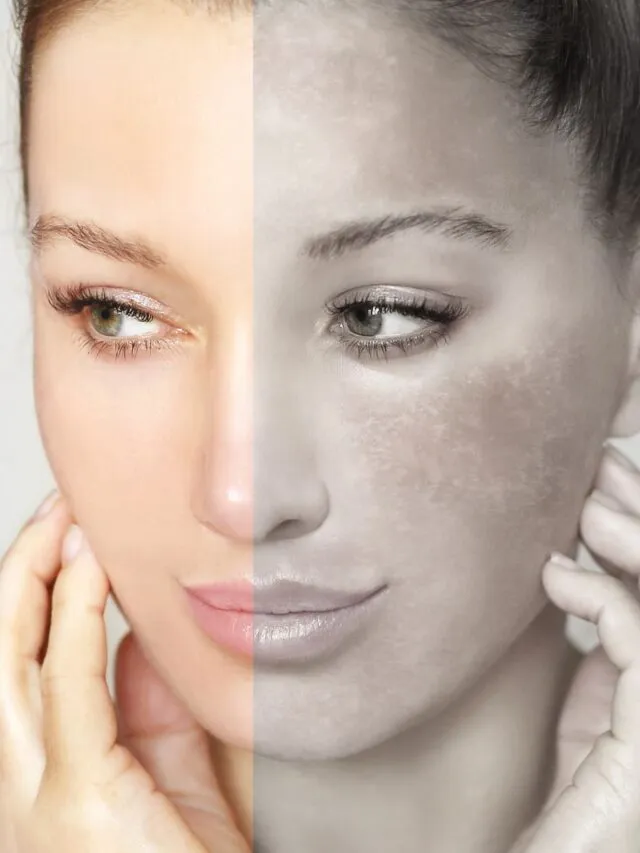
A wide array of face whitening remedies are available, ranging from natural ingredients to professional treatments. The best choice for you will depend on your skin type, the severity of the discoloration, and personal preferences. Natural remedies offer gentle approaches, while over-the-counter products and professional treatments provide more potent solutions. It’s important to research and consult with a dermatologist to choose the most effective and safe approach for your skin. Combining different remedies can yield better results, but always prioritize safety and skin health. Below are some of the most sought-after solutions to improve skin tone and reduce unwanted pigmentation.
Natural Remedies
Many people prefer to use natural ingredients to whiten the face because they are often gentler on the skin and less likely to cause adverse reactions. These remedies use ingredients available in your kitchen, making them accessible and cost-effective. However, it is important to remember that natural remedies may take longer to produce visible results compared to some chemical treatments. Always perform a patch test before applying any new remedy to your entire face to check for allergic reactions. Some popular natural remedies can help lighten the skin and improve its overall appearance, including lemon juice and honey, turmeric and yogurt masks, and aloe vera.
Lemon Juice and Honey
Lemon juice contains citric acid, a natural bleaching agent that helps lighten dark spots and brighten the skin. Honey acts as a humectant, moisturizing the skin and reducing irritation. Combining these two ingredients creates a simple yet effective face whitening mask. Mix fresh lemon juice with honey, apply it to the face, and leave it on for about 15-20 minutes before rinsing it off. However, be careful, as lemon juice can increase sun sensitivity, so apply sunscreen if you use this remedy during the day. This mask is best used once or twice a week and should be avoided if you have sensitive skin or open wounds. (Image: Lemon Honey Face Mask)
Turmeric and Yogurt Mask
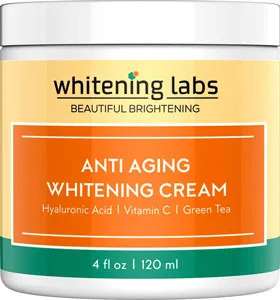
Turmeric has anti-inflammatory and antioxidant properties, which help reduce pigmentation and even out the skin tone. Yogurt contains lactic acid, a mild exfoliant that helps remove dead skin cells. Combining turmeric with yogurt creates a brightening and hydrating mask. Mix turmeric powder with plain yogurt to make a paste, apply it to your face, and leave it on for about 15-20 minutes. Then rinse thoroughly. Use this mask once or twice a week. Ensure that you are using high-quality turmeric to maximize its benefits, and consider adding a bit of honey for extra moisturizing benefits.
Aloe Vera
Aloe vera is known for its soothing and healing properties. It helps reduce inflammation and can lighten dark spots. Aloe vera also hydrates the skin, promoting a healthy and radiant complexion. Apply fresh aloe vera gel directly to the face or mix it with other ingredients like lemon juice or honey for enhanced effects. Allow it to sit for about 20 minutes before rinsing. Aloe vera is suitable for most skin types, including sensitive skin. Consistent use can help improve skin tone and reduce the appearance of blemishes, leaving your skin feeling refreshed and bright.
Over-the-Counter Products
Several over-the-counter (OTC) products are designed to address skin discoloration. These products typically contain active ingredients that help lighten the skin and reduce dark spots. When choosing OTC products, it’s important to consider your skin type and the specific concerns you want to address. Some common ingredients include hydroquinone, kojic acid, and arbutin, known for their skin-lightening properties. Start with a low concentration and gradually increase it to avoid irritation. Always perform a patch test before using any new product on your entire face, and consult a dermatologist if you experience any adverse reactions. Be sure to protect your skin from the sun by using a broad-spectrum sunscreen daily.
Whitening Creams
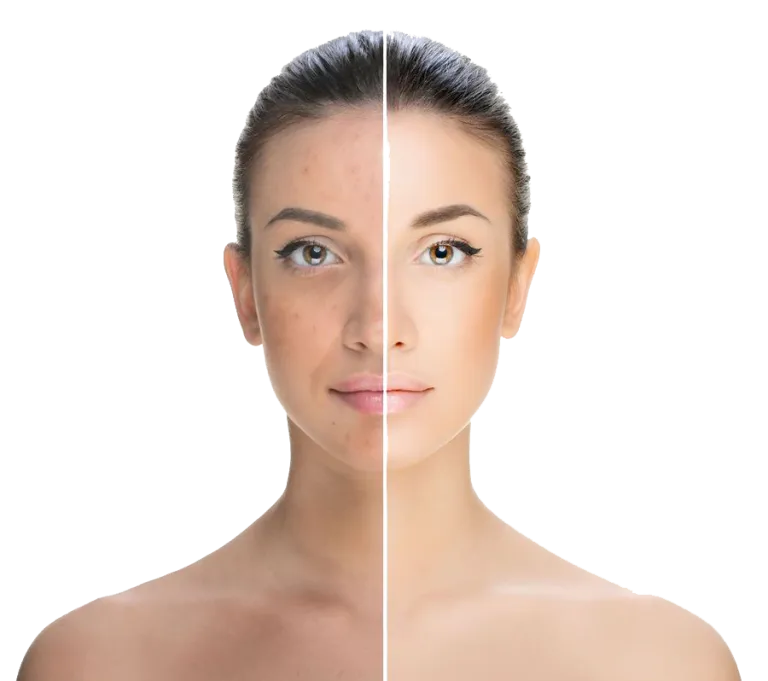
Whitening creams are formulated to reduce melanin production, thereby lightening the skin and reducing dark spots. These creams often contain active ingredients like hydroquinone, which is a potent skin-lightening agent. Hydroquinone works by inhibiting the enzyme tyrosinase, which is crucial for melanin production. Kojic acid and arbutin are also common ingredients known for their skin-lightening properties. When using whitening creams, carefully follow the product instructions and start with a low concentration. Regular use of these creams can lead to noticeable improvements in skin tone, but it’s important to combine them with sun protection to maintain results and prevent further damage. Excessive use of hydroquinone can cause side effects, so consultation with a dermatologist is recommended.
Serums with Vitamin C
Vitamin C serums are a popular choice for brightening the skin and reducing hyperpigmentation. Vitamin C is a powerful antioxidant that helps protect the skin from free radical damage and stimulates collagen production, leading to improved skin health and radiance. It also inhibits melanin production, helping to lighten dark spots and even out skin tone. Vitamin C serums are available in various concentrations, making them suitable for different skin types. Look for serums containing L-ascorbic acid, the most potent form of vitamin C. When using a vitamin C serum, always apply sunscreen during the day to protect the skin from sun damage and enhance its effectiveness. Regular use can lead to a brighter, more youthful complexion. (Image: Vitamin C Serum)
Chemical Peels
Chemical peels involve applying a chemical solution to the skin to exfoliate the outer layers, revealing a brighter and more even complexion. These peels can range from mild to deep, depending on the strength of the solution used. Light peels often use alpha-hydroxy acids (AHAs), such as glycolic acid or lactic acid, to remove dead skin cells and reduce the appearance of dark spots. Deeper peels can use trichloroacetic acid (TCA) to address more severe pigmentation issues. After a chemical peel, your skin may be sensitive, so it’s important to protect it from the sun. Chemical peels are generally effective but can cause side effects like redness, peeling, and temporary skin sensitivity. Consulting a dermatologist before undergoing a chemical peel is essential to determine the right peel for your skin type and concerns.
Professional Treatments

For more stubborn cases of skin discoloration, professional treatments offered by dermatologists can provide effective solutions. These treatments often utilize advanced technologies and highly concentrated ingredients to deliver significant results. Professional treatments can be more expensive than OTC products or natural remedies. They also require a commitment to aftercare to achieve the best outcomes. Always consult a qualified dermatologist before undertaking any professional treatment to ensure that it is suitable for your skin type and specific concerns. Some common professional treatments are discussed below.
Laser Therapy
Laser therapy uses focused light beams to target and break down melanin, reducing dark spots and hyperpigmentation. Different types of lasers can be used to treat various skin concerns, including age spots, sunspots, and melasma. Laser treatments are often precise, targeting only the affected areas while minimizing damage to the surrounding skin. Several sessions may be needed to achieve optimal results. After the treatment, you may experience some redness and swelling. Follow the dermatologist’s aftercare instructions carefully to promote healing and prevent complications. Laser therapy can be an effective option for reducing skin discoloration, especially when performed by an experienced professional. (Image: Laser Therapy Skin)
Microdermabrasion
Microdermabrasion involves gently exfoliating the skin’s outer layer using a device with tiny crystals or a diamond-tip wand. This process removes dead skin cells, stimulates collagen production, and improves skin texture. Microdermabrasion can help reduce the appearance of dark spots, fine lines, and uneven skin tone. It is a minimally invasive procedure, and multiple sessions are usually needed to achieve desired results. After the treatment, your skin might be slightly red, but this typically subsides within a few hours. Microdermabrasion is suitable for various skin types and can be used as a standalone treatment or in combination with other procedures. It helps rejuvenate the skin and promotes a brighter, more even complexion.
Important Considerations
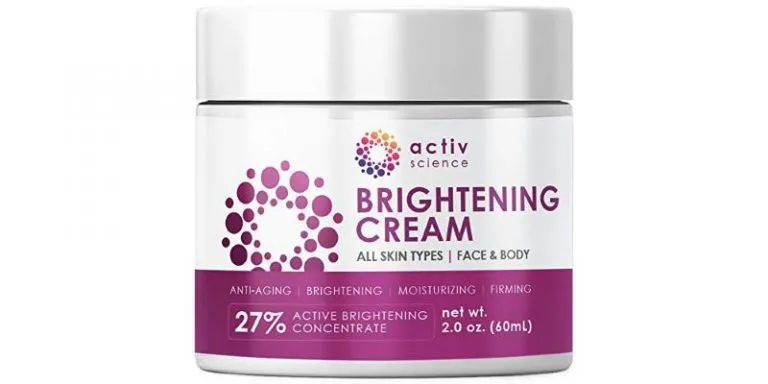
Before starting any face whitening remedy, certain considerations can help ensure safe and effective treatment. Understanding your skin type, potential sensitivities, and the importance of sun protection is essential. Always consult with a dermatologist to get personalized advice. These factors will play a key role in determining the right course of action for your skin, promoting both health and long-lasting results. This approach ensures you choose the most appropriate treatment and minimizes any risks associated with skin lightening procedures.
Skin Sensitivity
If you have sensitive skin, select gentle face whitening remedies that are less likely to cause irritation. Always perform a patch test before applying any new product to your entire face. Look for products that are fragrance-free, hypoallergenic, and formulated for sensitive skin. Ingredients like retinol and hydroquinone can be particularly irritating for sensitive skin. Choose natural remedies like aloe vera or vitamin C serums with caution, as they might cause reactions in some individuals. If you experience any redness, itching, or burning, discontinue use immediately and consult a dermatologist. The key is to gradually introduce new products and monitor your skin’s response carefully.
Sun Protection
Sun protection is critical when using any face whitening remedy. Many treatments increase your skin’s sensitivity to the sun, making it more susceptible to damage and worsening discoloration. Apply a broad-spectrum sunscreen with a high SPF every day, even on cloudy days. Reapply sunscreen every two hours, or more frequently if you’re swimming or sweating. Wear protective clothing, such as hats and long sleeves, and seek shade during peak sun hours. Consistent sun protection not only protects your skin from further damage but also helps maintain the results of your face whitening treatments. Incorporating sun protection into your daily routine ensures your skin stays healthy and vibrant.
Consulting a Dermatologist
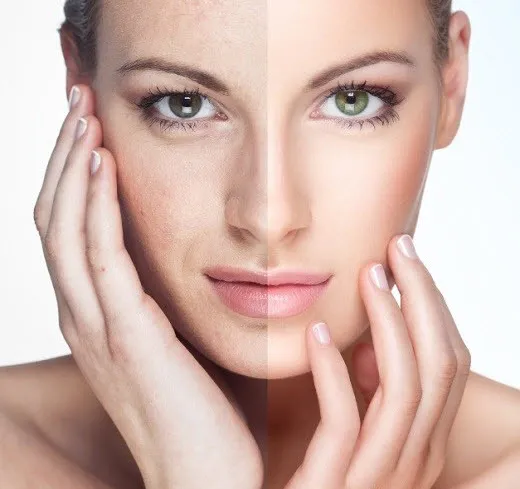
Consulting a dermatologist is always recommended before starting any face whitening regimen. A dermatologist can assess your skin type, identify the underlying causes of discoloration, and recommend the most appropriate treatments. They can also help you manage any potential side effects and monitor your progress. Dermatologists can provide personalized advice, taking into account your individual needs and concerns. They can recommend treatments and procedures that are suitable for your skin. Scheduling regular check-ups with a dermatologist ensures your skin stays healthy and allows you to address any concerns promptly. This expert guidance is essential for achieving safe and effective results, allowing you to maintain a healthy and radiant complexion.
Maintaining Results
Achieving a brighter and more even complexion is only part of the journey; maintaining these results requires a consistent skincare routine and a healthy lifestyle. Long-term success involves a combination of appropriate skincare practices and lifestyle choices. Regular maintenance helps prevent discoloration from recurring and keeps your skin healthy and glowing. Establishing a routine and healthy habits can ensure that you enjoy the benefits of your face whitening efforts for years to come. This commitment helps to retain a more radiant complexion.
Healthy Diet
A healthy diet plays a vital role in maintaining skin health and preventing discoloration. Consume a diet rich in antioxidants, vitamins, and minerals. Foods like fruits, vegetables, and lean proteins provide essential nutrients that promote skin health and protect against damage. Drink plenty of water to keep your skin hydrated and support its natural functions. Limit your intake of processed foods, sugary drinks, and excessive alcohol, as these can contribute to inflammation and skin problems. Including a balanced diet with colorful fruits and vegetables not only boosts your overall health but also improves the appearance of your skin, contributing to a brighter, more radiant complexion. (Image: Healthy Diet Skin)
Consistent Skincare Routine
Maintaining a consistent skincare routine is essential for long-term results. Follow a routine that includes gentle cleansing, exfoliating, moisturizing, and applying sunscreen daily. Use products designed for your skin type and address your specific concerns. Regular exfoliation helps remove dead skin cells, revealing a brighter complexion. Moisturizing keeps the skin hydrated and supports its natural barrier function. Applying sunscreen every day protects your skin from sun damage and prevents further discoloration. By sticking to your routine, you will keep your skin healthy and its natural radiance. Consistency is key to seeing and maintaining positive results and making your face whitening efforts successful in the long run.
